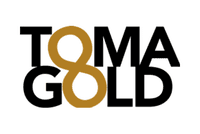Is the US economy doing as well as we hope? If it isn’t, what does that mean for gold?
Looking for an answer to gold’s lackluster performance in the last year, Gold Investing News spoke with Scott Carter, CEO of Lear Capital, who said “I think what’s happening is the realization that the economy is not doing as well as maybe the economists thought.”
To start, Carter pointed to 2014′s first quarter, during which GDP posted a growth rate of -1.9 percent and unemployment remained high. Additionally, he said, “you’ve got all these consumer trends, retail sales, home starts that are beginning to paint a picture that the economy is not very strong.”
Continuing, Carter said that given the US GDP’s worse-than-expected performance in the first quarter of this year, he is skeptical that the second quarter will provide the positive figures that the market is hoping for. Instead of the 4-percent growth that is expected, Carter believes that the number will be more in line with 2-percent growth, or possibly less.
And, he cautioned, “if the second-quarter GDP number is negative, let’s face it, we’re in a recession.”
Granted, that’s not what the general public wants to hear, but according to Carter, we aren’t looking at ”a robust economy that’s growing at 3 percent.” Instead, he highlighted the recent cuts in global growth by the World Bank and Bank of America as being part of a truth no one wants to hear.
What does that have to do with gold?
With a weak economy, currencies around the globe will inevitably weaken. Bearing that in mind — and without any geopolitical wildcards thrown in the way — gold should rise dramatically.
For his part, Carter sees gold being pushed well above the $1,500 mark. However, that is a slightly longer-term outlook.
For 2014, seeing as how we are already calling an end to the first half of the year, Carter expects to see the yellow metal reach $1,450, if not higher. That said, he does not see that as an average price for gold.
“I think you are going to see a correction in the equity markets. I think you are going to see fear enter the market and I think you are going to see every major central bank revise its GDP estimates to below 3-percent growth this year,” he said.
Since speaking to Carter late last week, the International Monetary Fund (IMF) has already cut its forecast for US growth. According to Bloomberg, the Washington-based IMF sees the US growing by 2 percent this year, which is down from April’s 2.8 percent.
Taking a somewhat realistic tone on the growth cut, IMF’s managing director, Christine Lagarde said, “[w]e see prospects looking up for the U.S. but we also believe that attention must now turn to the kinds of policies needed to lay the foundation for growth that will be sustainable.”
While Lagarde remains slightly optimistic, Carter sees it differently.
“We are in this holding period between the belief and the hope that the economy has turned the corner and the reality that is hasn’t. When those two collide, whether it’s the second half of this year or 2015, you’re going to see a lot of correction. And my opinion is that gold’s going to be the beneficiary.”
What’s an investor to do?
The first thing that Carter notes is that for investors, diversification is key because it allows them to be prepared to weather any storm. ”Have contra assets. Be balanced for growth, have assets for income and have a balanced portfolio,” he advised.
But really, if the expectation is for gold to reach higher prices in the future, getting into physical gold could be a viable option for investors who can wait for that day to come.






